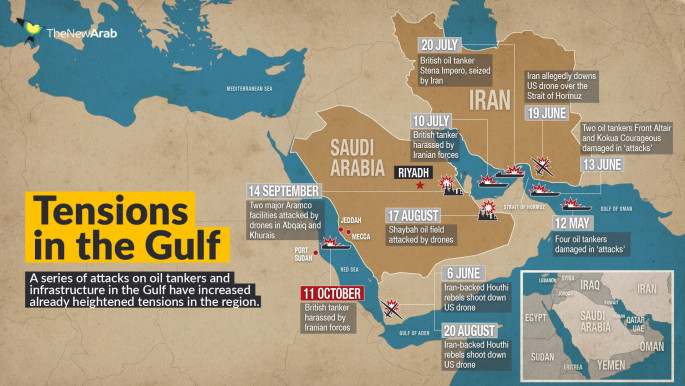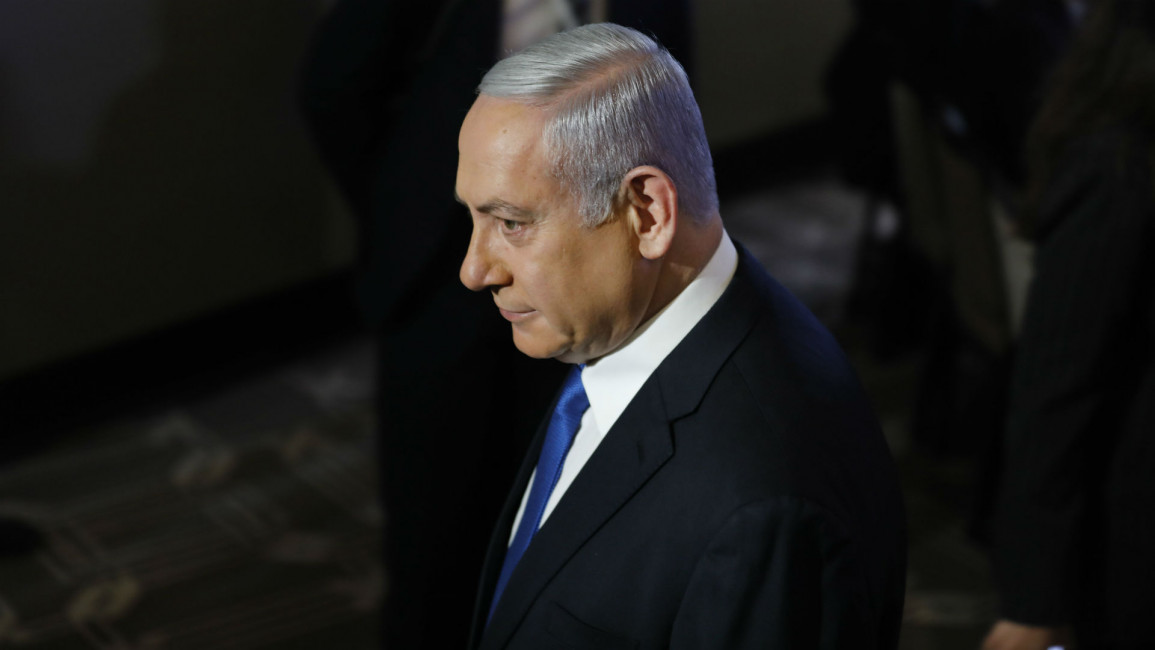Netanyahu accuses Iran of looking to strike Israel from Yemen
Netanyahu made the comments as he met US Treasury Secretary Steven Mnuchin in Jerusalem, and while he again congratulated Trump on the death of Islamic State group leader Abu Bakr al-Baghdadi, he also called for "a lot more" sanctions against Israel's archfoe Iran.
"Iran is seeking to develop now precision-guided munitions, missiles that can hit any target in the Middle East with a circumference of five to 10 metres," Netanyahu said.
"They want to place them in Iraq and in Syria, and to convert Lebanon's arsenal of 130,000... rockets to precision-guided munitions."
He added that "they seek also to develop that, and have already begun to put that in Yemen, with the goal of reaching Israel from there too".
Netanyahu made reference to 14 September attacks on two Saudi oil facilities and echoing Riyadh, blamed Iran.
Washington, Riyadh, Berlin, London and Paris also blamed Iran for attacks that damaged the Saudi oil sector and forced the world's largest crude exporter to sharply reduce production.
Tehran denied any link to the strikes, which were claimed by Houthi rebels in Yemen. Iran supports the rebels against a Saudi-led coalition that has been fighting the Houthis since 2015.
Following the attacks, US President Donald Trump said he was preparing a response. Several days later he endorsed military restraint, signalling his preference for intensifying a "maximum pressure" campaign through economic sanctions.
The Pentagon then said it would send one Patriot missile battery and four radar systems to Saudi Arabia in a fresh troop deployment after the kingdom's air defences were breached in the attack.
 |
Last week, US Defence Secretary Mark Esper said that two fighter squadrons and additional missile defence batteries were being sent to Saudi Arabia, bringing to about 3,000 the total number of US troops deployed to the kingdom since last month.
Trump said Riyadh had agreed to pay for the deployment, however the SPA report said only that the military assistance comes in the context of "historic relations and (a) well-established partnership".
The US official said earlier this month that since May the United States has increased its 70,000-strong presence in the Middle East by 14,000 personnel, most of those deployed to the Gulf region in response to Iran's actions.
"The US military has on alert additional army, navy, marine and air force units to quickly provide increased capability in the region if necessary," he said Friday.
He also urged US allies in Europe to follow America's lead with their own defensive assets "for regional stability."
The US has also implemented additional sanctions on Tehran in the wake of the attacks.
Mnuchin, on a tour of the Middle East and India, said "we have a shared view as to the threat that Iran poses to the region and to the world" and spoke of the US "maximum pressure campaign" involving sanctions.
"We will continue to ramp up more, more, more, as you've said."
Read more: How the Saudi-led coalition is sinking in political and military failures in Yemen
Washington has hit Iran with unilateral sanctions since withdrawing from a 2015 nuclear accord between world powers and Tehran.
Israelis have been concerned over Trump's withdrawal of US troops from neighbouring Syria that many have viewed as a blatant abandonment of Washington's Kurdish allies.
There are worries that Israel too could be abandoned by its most important ally, as well as longstanding concerns that Iran could move to fill any vacuum in Syria.
Iran, along with Russia, has been backing Syrian President Bashar al-Assad's regime in his country's eight-year civil war.
Follow us on Twitter and Instagram to stay connected


![President Pezeshkian has denounced Israel's attacks on Lebanon [Getty]](/sites/default/files/styles/image_684x385/public/2173482924.jpeg?h=a5f2f23a&itok=q3evVtko)



 Follow the Middle East's top stories in English at The New Arab on Google News
Follow the Middle East's top stories in English at The New Arab on Google News


